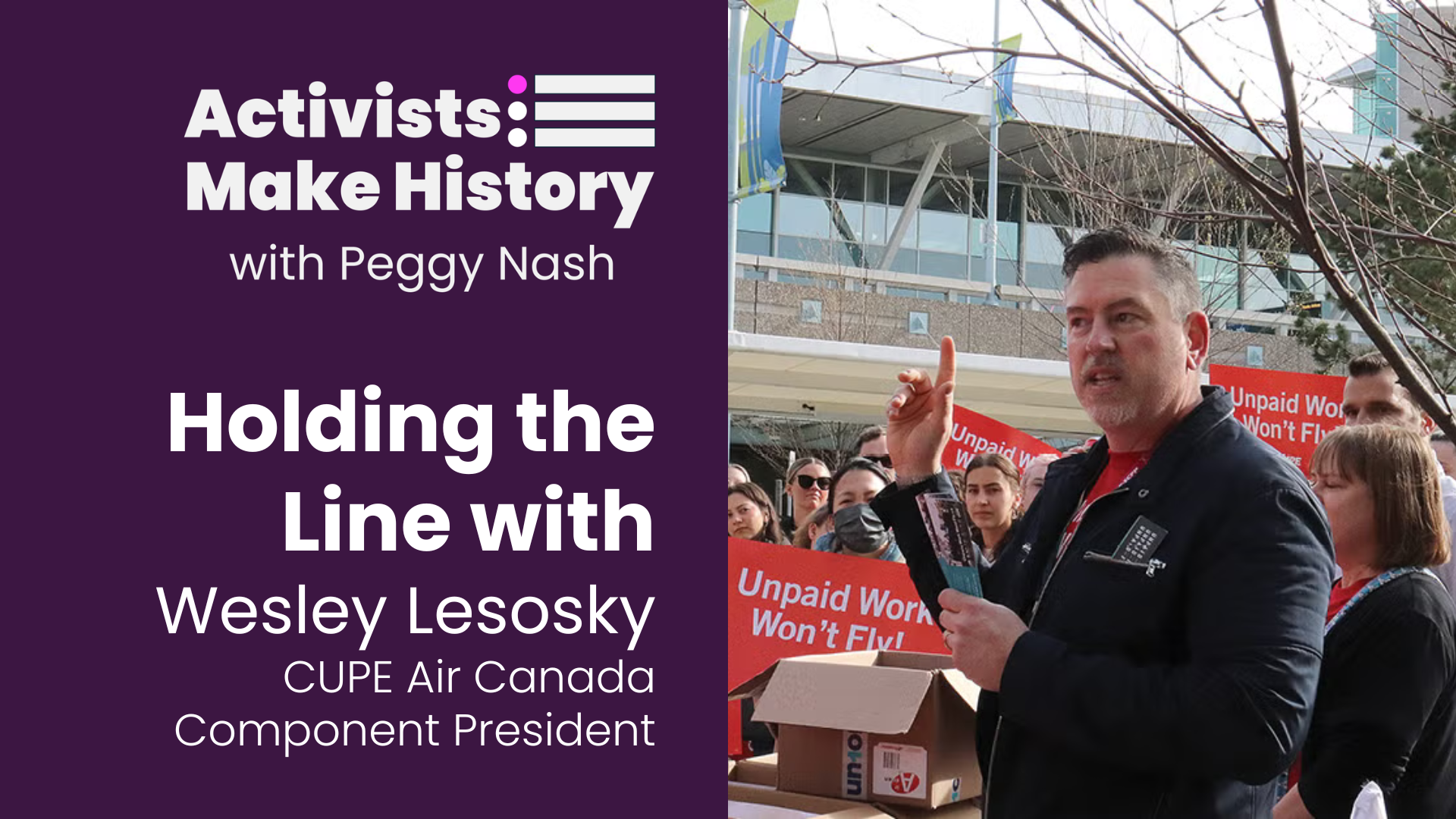Young Canadians are typically the first to face a tougher job market during hard economic periods, and the times are getting tougher. For young Canadian workers between ages 15 and 24 in July 2025, youth employment hit its highest levels at 14.6 percent — a situation comparable to the aftermath of the 2008 Financial Crisis. During these crises, equity-deserving youth experience even higher rates of unemployment. This outcome is frustrating for young people looking for their first job, and Canada’s right-wing is looking for scapegoats, rather than economic justice.
During economic downturns, newcomers to Canada often become the target of blame and misdirection. Canada admitted more than 800,000 new permanent residents between 2022 and 2023 — a sudden spike prompted by the pandemic backlog. International students were allowed to work more than part‑time shifts as part of the government’s policy to fill acute labour shortages, while doubling in size over a decade. They were the first to receive anti-migrant hate as the economic crisis mounted, and they were the first to be targeted as the problem. Now, international student permits have plummeted, yet labour market problems persist for young Canadians.
Youth unemployment in Canada does not need scapegoats, it needs policy change.
Newcomers did not create this crisis. Migrants came to Canada to study, work, and contribute to the economy. They should be able to keep contributing to the economy, no matter the labour or human rights program they are funnelled into. The real issue is structural, with employers leaning on lower‑paid temporary labour (paying immigrants nominal wages up to 22.6 percent less than Canadian born workers). Meanwhile, Ontario Premier Doug Ford tells young people to “look harder” for a job, but employers seek to pay temporary foreign workers unlivable wages, and businesses across Canada continue struggling to fill jobs even after cuts to immigration. This system fails to create enough good jobs for everyone — young, newcomer, and prime-aged Canadian workers alike.
Adding to the job shortfall is job scarcity, driven by a profit-driven, pandemic-induced inflation spike, followed by blunt interest‑rate hikes that have cooled hiring across the economy. Price inflation, economic stagnation, and low productivity under this policy regime have not improved the job market. US tariffs have only worsened conditions, resulting in hiring freezes that disproportionately affect youth.
By early 2024, job vacancies in youth‑heavy industries like sales and service have dropped by over 30 percent across Canada, with arts, culture, and recreation seeing similar declines. Economic shocks have also enabled price inflation for Canadian retailers and restaurants who pass on costs to consumers or workers, and induce low retail job vacancies.
Increasing automation also threatens entry‑level jobs that younger people take on, like those of retail salesperson and food counter attendant. Youth aged 15 to 24 lost 10,600 jobs in retail trade, and 10,300 jobs in accommodation and food services between 2022 and 2024. Entry-level positions that require university-level education are also at risk due to economic uncertainty. For young university degree holders aged 20 to 24, the unemployment rate has risen faster than other age groups, paired with the decline in entry-level job postings concentrated in roles highly exposed to automation.
While challenging, this is not a hopeless situation, and young Canadians can look to active labour market policies around the world to solve this crisis. In the European Union, the Reinforced Youth Guarantee commits among EU Member States that, “all young people under the age of 30 receive a good quality offer of employment, continued education, apprenticeship, or traineeship,” within four months of leaving school. As a result of this policy, the EU effectively removed approximately 57 million youth out of Not in Education, Employment, or Training (NEET) status. By making a similar guarantee to Canadian youth and addressing gaps in wages, education, training, and facilitating employment, youth would propel the Canadian economy forward. Tangibly, prioritizing youth training and employment would increase overall real GDP by $18.5 billion by 2034 and “add an additional 228,000 jobs in the process.”
In Australia, the Youth Jobs PaTH program combines short employability workshops, paid internships, and wage subsidies for employers who hire permanently. On average, through this program, more than 50 percent of participants were able to secure paid internships within three months, and approximately 9,900 youth no longer required the subsidy to keep their job within the same period. These results indicate that publicly subsidized wage support to ensure good paying, entry-level jobs can lower barriers to employment.
In the UK, the ‘King’s Trust Enterprise Programme’ has provided youth with work‑readiness coaching, access to employer networks, and skills training tailored to employer needs. As a result, over 70 percent of participants are employed, self‑employed, or in education. In addition to youth employment and education, the Enterprise Program establishes entrepreneurship as a parallel path towards economic security. In a weak labour market, Canada could adapt this approach to empower young people to create their own opportunities.
Youth unemployment in Canada does not need scapegoats, it needs policy change. Newcomers are certainly not the cause of youth unemployment but are caught up in the same structural economic problems as young Canadians. There are proven solutions around the world that young Canadians can point to whenever policymakers and big business try to pit youth against immigrants every time. If Canada embraces these changes, we can turn today’s crisis into tomorrow’s opportunity.





